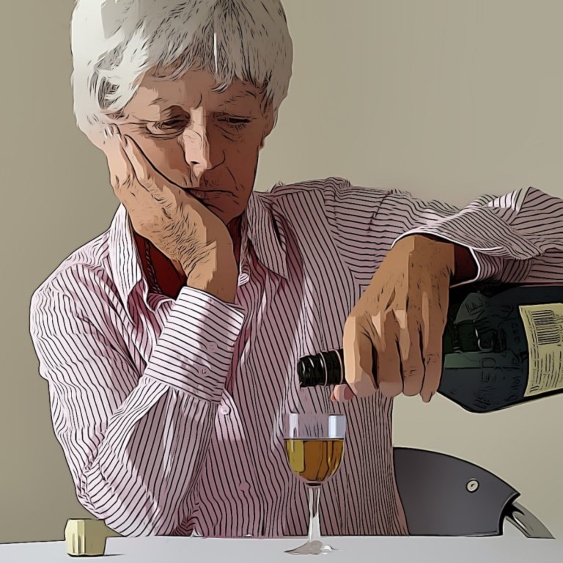The Early Stages of Alcoholism
You can experience all kinds of problems in the first stages of alcoholism, such as cravings, withdrawals, and irritability. Some of these symptoms may be mild, while others can be severe. Once you start to drink, it is easy to see how drinking can eventually become a way of life. This is an unhealthy stage in most cases and one that should be avoided.
Once you start to drink moderately alcohol use, your alcohol-drinking habits change to include regular drinking on a regular basis, including heavy drinking. In the beginning, you might still have cravings, withdrawal symptoms, and irritability. However, if you don’t take action to stop drinking your alcohol addiction, eventually you will find that you can no longer do anything without consuming alcohol. You will likely experience many side effects from this, including depression and other mental problems that you never knew existed before.
The Second Stage of Alcoholism
Drinkers may experience cravings for alcohol and may not know why. They may experience moderate withdrawal symptoms, as well, but because they are not experienced heavy drinkers, they will usually recover fairly quickly. When this stage ends, it may be hard to maintain a sober living lifestyle, but there is no sign of addiction yet.

The Third Stage of Alcoholism
This stage is mostly heavy drinkers who continue drinking for the majority of their adult life. They may experience withdrawal symptoms that last longer than the initial ones. They will likely continue drinking for several years or maybe even decades. The intensity of the withdrawal symptoms increases as the person begins to drink, and they could even develop physical problems due to their habit.
It is important to remember that when you reach this stage of alcohol addiction, treatment is the best option. Treatment is available to help individuals overcome addiction so that they do not suffer from the consequences of the disease. Your health and your family’s health can be threatened by alcohol abuse, so you need to begin treatment to begin dealing with the disease.

Pre-Alcoholism Stage
Alcoholism starts at the early stages of alcoholism. Many people feel that alcoholism starts in the latter stages but this is not true. Alcoholism usually starts in the Pre-alcoholism stage. At this stage, family and friends excuse alcohol abuse by its users. A person who tries to control his alcohol consumption and stop drinking can divide alcohol into four or five stages.
Pre-alcoholism stages of alcoholism are known to start in the early twenties. As alcohol abusers grow older they become less tolerant towards alcohol. They find it difficult to resist using alcohol and alcohol addiction worsens. The First Stage – Alcoholism is known to develop if a person uses alcohol on a regular basis for a longer period than one month. The Second Stage – Alcoholism becomes more acute if a person continues to abuse alcohol regularly.
Once a person becomes dependent on alcohol, he becomes unable to quit on his own. This stage is known as Alcohol Dependence. Once the person is dependent on alcohol, he cannot do without it and he may not have to experience withdrawal symptoms at all. Alcohol Dependency is a very dangerous stage and you should get help immediately for it.
End Stages of Alcoholism
When you are in the last stages of alcoholism, your body is still adjusting to the effects of alcohol and many of the changes you had made in your life during your years of drinking are no longer working. Your brain is still used to the effects of alcohol and has not fully adjusted, and this can lead to many health problems including memory loss and mood swings, anxiety, panic attacks, and depression.
If you have been drinking heavily for a long time, then you may be having withdrawal symptoms as your body adjusts to its new state. Many times during these days your liver has no options left and begins to produce less of the substance that it needs to function. This leads to dehydration, headaches, nausea, fatigue, and other effects. You should seek help from a trained therapist who will help you overcome these symptoms so you can come to the realization that you need help.
Symptoms of The End Stages of an Alcoholic
In most cases, there are several symptoms you should watch out for during the final stages of alcoholism. One of the first signs of this is when your brain has experienced a complete change from when you started drinking to now. Most people will experience memory loss, mood swings, anxiety, and depression while they are in the final stages of alcoholism. This can be very depressing and hard on anyone who is experiencing it. The last thing you want is to become depressed and have your condition worsens because of alcohol withdrawal.

Advanced Stages of Alcoholism and Alzheimer’s
The latest research on the topic of advanced stages of alcohol dependence is that alcoholics who drink heavily on a regular basis have an increased chance of developing Alzheimer’s and other brain-related diseases. The researchers were looking at how alcoholics who are in advanced stages of the disease cope with their withdrawal symptoms as well as the various cognitive challenges that may arise after being detoxed. They were actually looking to see if the patients were able to retain the memory power they once had and how they became more aware of the changes in their lives. Interestingly, they discovered that the patients were not only able to retain their memory skills, but they were also able to think rationally.
Alcoholism and Memory
While it is very difficult to determine if the patients were able to retain their memory, it is still good news to know that some were able to recover their memory after being exposed to the effects of alcohol on the human body. However, there are some problems with this method of testing since the patients would be subjected to a controlled environment where they can still get drunk and go home. If they are then tested in a real-life situation without alcohol, their memory will obviously not be as sharp as if they have been drinking on a daily basis. The only way to really find out if an alcoholic has recovered from an advanced stage of alcohol dependency is to do a proper brain scan and check for atrophy or shrinkage of the brain. If you are an alcoholic then you should start taking in supplements like Vitamins C and E as well as other herbs that are said to help fight off the effects of alcohol on the brain.
Alcohol addiction and the advanced stages of alcoholism should never be ignored or overlooked. As long as the patient is sober and using a safe method of alcohol detox, they are in a much better position to deal with their condition. The reason why it is important to be tested for dementia and Alzheimer’s is that they can be treated when detected early and in some cases, it could even prevent them from developing.
How do I know if I Suffer from Alcoholism?
Mild to moderate alcohol use in adults is not necessarily a cause for alarm in most adults. But once alcohol use becomes out of control, there is a danger that you will become addicted to it.
There are several differences between the stages of alcoholism, and it can be confusing knowing the different stages and how they relate to each other. The most important thing is that you are able to recognize the differences and know that you have reached the stage where it is time to seek treatment. However, even if you have reached this stage, it is important to take immediate action and seek help. When you get into the different stages, you should not feel overwhelmed because the treatment process for alcoholism varies greatly.
Get Help with Alcoholism
If you want help with alcoholism, contact a local alcoholism treatment center today, and discuss your options. A professional can assess your situation and work with you to help you get through this difficult time. You can be on the road to recovery before you have even reached the stages of addiction, and you can get help in a comfortable setting so that you can enjoy living a life free from the disease.

